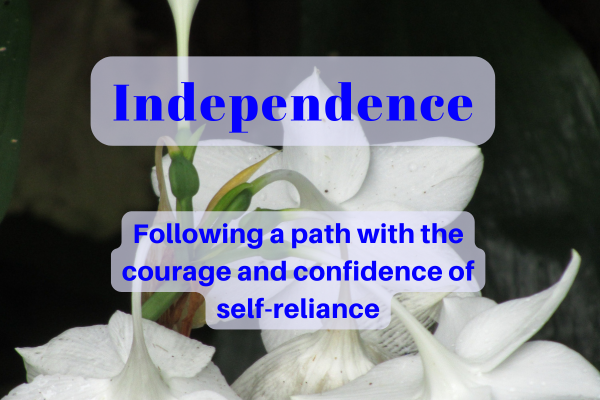
Justice
Description

Justice is the practice of fairness, integrity, and respect in our relationships and decisions. It calls us to treat others with dignity, to recognize their inherent worth, and to uphold their rights. Justice ensures that we strive for balance and equity, whether in our personal, professional, or societal interactions.
In everyday life, justice requires honesty—admitting when we are wrong and making efforts to right those wrongs. It also involves standing up for others, particularly when they face injustice or unfair treatment. To live justly is to act with consideration for the greater good, seeking solutions that benefit not only ourselves but others as well.
Justice goes beyond legal frameworks; it is a moral compass that guides us to be accountable, transparent, and compassionate. It encourages us to seek understanding before judgment and to address conflicts with a spirit of reconciliation. Justice fosters mutual respect and trust in family life, ensuring that each person’s needs and voice are considered. In the workplace, it promotes ethical decision-making, fairness in opportunities, and respect for diversity.
By practicing justice, we contribute to creating a world where peace, equity, and understanding prevail. It reminds us that while life may not always be perfectly fair, we can each do our part to ensure fairness in our corner of the world.
Affirmations for Justice
1. I will treat everyone with fairness, regardless of their background or status.
This helps remind us to view all individuals as equals, reinforcing impartiality in our interactions.
2. I listen to others with an open heart before making judgments.
Practicing active listening ensures we understand the full picture before taking action, promoting fairness
3. I seek the truth in every situation, even when it is uncomfortable.
Truth is the foundation of justice; this affirmation encourages us to be honest with ourselves and others.
4. I will stand up for those who cannot speak for themselves.
This helps us to take responsibility for justice by defending those who are vulnerable or marginalized.
5. I will admit my mistakes and make amends when I am wrong.
Being willing to correct wrongs shows integrity and strengthens justice in our relationships.
6. I will not allow my personal feelings to cloud my judgment.
This helps us practice objectivity, ensuring that decisions are made based on fairness rather than emotion.
7. I seek balance in all situations, ensuring that the needs of everyone are considered.
Justice involves weighing different needs, and this affirmation fosters thoughtful decision-making.
8. I choose to be patient in conflicts, knowing that justice takes time and careful thought.
Patience allows us to deliberate carefully before acting, ensuring our actions are fair.
9. I will speak up against injustice, even when it is difficult.
This reinforces the courage needed to stand against wrongdoing and promote justice in challenging situations.
10. I believe that every action toward fairness strengthens the bonds of humanity.
This affirmation connects personal justice to the larger goal of building a more equitable and compassionate world.
Quotes
“The world rests on three things: on justice, on truth, and on peace..” — The Talmud (Pirkei Avot 1:18)
“Injustice anywhere is a threat to justice everywhere.” — Martin Luther King Jr.
“At his best, man is the noblest of all animals; separated from law and justice, he is the worst.” — Aristotle
Justice In Family Life
Justice in family life is the practice of fairness, respect, and honesty in our daily interactions. For parents, justice means treating each child with fairness while recognizing their unique needs and strengths. It is about setting clear, consistent expectations and being accountable for your words and actions.
Parents practicing justice ensure that discipline is not about punishment but about teaching and guiding their children toward understanding right from wrong. It also means listening to their children’s perspectives and making decisions that reflect both fairness and love.
For children, justice means learning to treat their siblings and parents with respect, sharing responsibilities, and understanding the importance of fairness. It involves learning how to admit mistakes, apologize, and make amends when necessary. Children practicing justice begin to understand that everyone’s needs matter and that fairness isn’t always about getting what you want, but about doing what is right.
In a just family, every member’s voice is valued, and conflicts are resolved with respect and understanding. Justice creates a foundation of trust, where everyone knows they will be treated fairly, heard, and loved. When families practice justice, they build a home where fairness, responsibility, and mutual respect guide their relationships.
Balancing Virtues
Several virtues are crucial in maintaining a healthy and balanced sense of Justice.
-
-
- Compassion: Compassion balances Justice by encouraging understanding and empathy, helping individuals see the broader context and consider the feelings and needs of others when assessing fairness.
- Forgiveness: Forgiveness balances Justice by acknowledging that people make mistakes and deserve an opportunity to rectify them, preventing an overly rigid or unforgiving stance.
- Integrity: Integrity balances Justice by ensuring that individuals act consistently with their moral principles and maintain honesty, even when facing difficult choices, thereby upholding fairness and truth.
- Responsibility: Responsibility balances Justice by reminding individuals of their duty to protect the rights and well-being of others and to address injustices when they encounter them, preventing an underdeveloped sense of Justice characterized by neglect or apathy.
-
The balancing virtues can help individuals navigate the complexities of Justice and foster a society that values fairness and equity while promoting harmonious relationships.
Joe is a husband, father, grandfather, author, speaker, educator, course creator, and parent/family coach.
He helps parents develop unity, find clarity, communicate, and develop consistency in their parenting with the Four C’s of Successful Families. You can find his work on social media.
In addition, the Four C’s newsletter is enjoyed by many as it encourages parents to self-care, build their relationships with their partners, and raise their children.
And he loves to golf!




